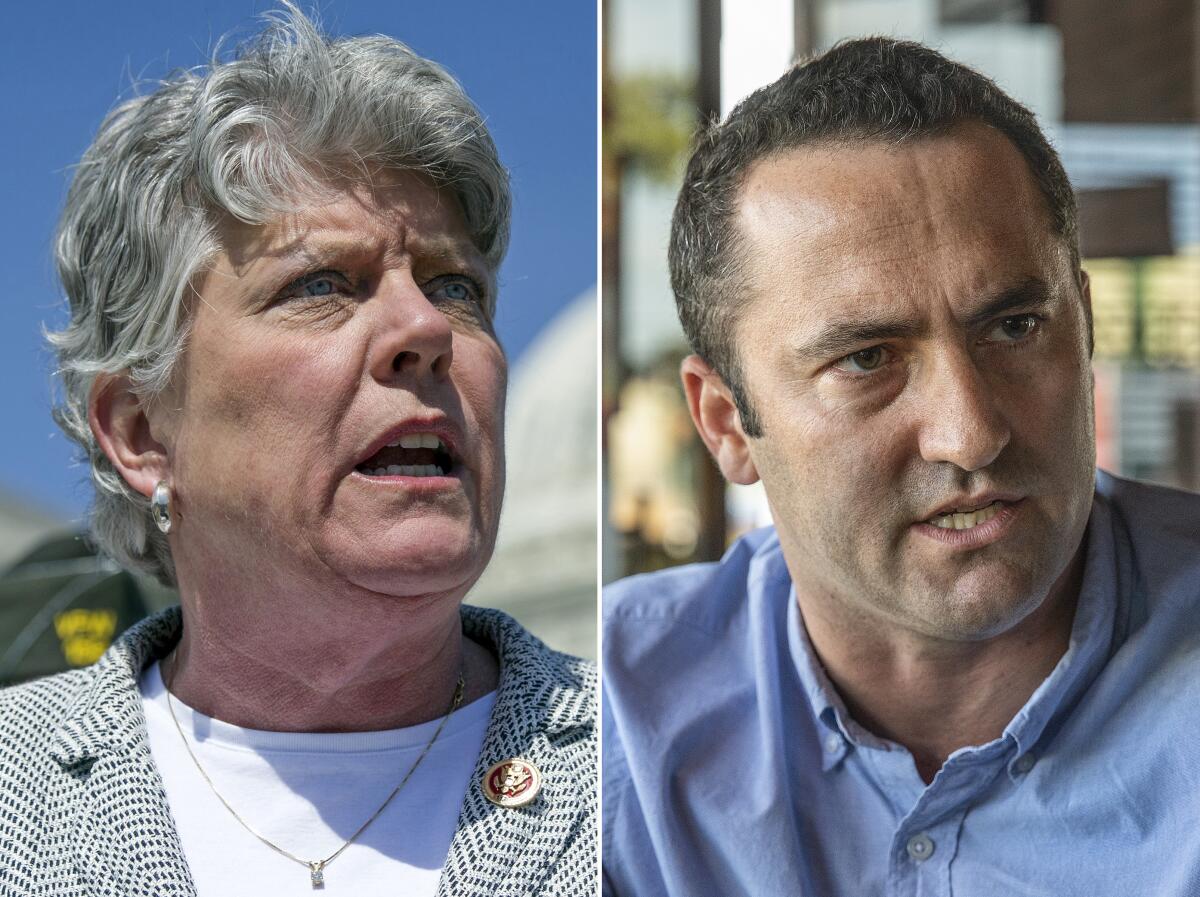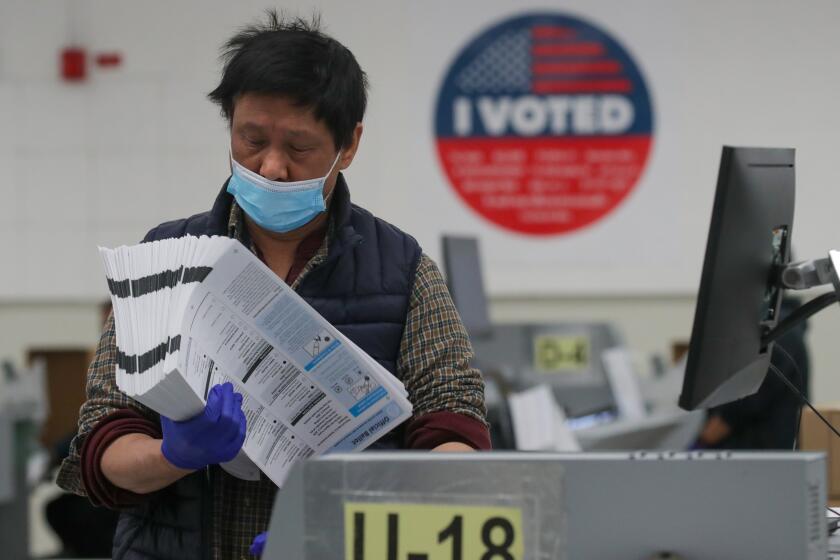After last-minute alarm, Democratic Rep. Julia Brownley hangs on to Ventura County seat

Rep. Julia Brownley has hung on to her Ventura County-based congressional seat in an overwhelmingly Democratic district that at the last minute was viewed as competitive.
The veteran lawmaker defeated Matt Jacobs, a former federal prosecutor, who was seen as an affable but longshot candidate in a district that supported Joe Biden by 20 percentage points. The Associated Press called the race Saturday, though official results will take longer.
Brownley, a Democrat, said in a statement that the contest had been about values, and she criticized “extremists on the right” over their views on abortion. She said while Republicans had focused “solely on inflation, with no plan to address it, they failed to understand that protecting a woman’s right to choose is not only a moral issue, but an economic one. Having politicians dictate what a woman can and cannot do with her own body is profoundly wrong.”
She thanked voters for participating in democracy, adding: “I believe the voters resoundingly affirmed that we succeed as a nation when our democracy is at its strongest. Our economy, our security, and our future are all intertwined with the rule of law, free and fair elections, and the ideal of equality for all.”
The Jacobs campaign did not respond to requests for comment.
The incumbent’s reelection had been considered secure, but in the weeks before the election, Democrats — notably the congresswoman — sounded alarm bells that she was at risk.
In the 26th Congressional District, which includes a sliver of Los Angeles County, Democrats had a 14.8-percentage-point voter registration advantage over Republicans, even after redistricting removed the city of Ventura and added more conservative Simi Valley.
Republicans represented the area for 70 years until Brownley won her congressional seat in 2012. The region’s residents are viewed as less strictly partisan than in other parts of the state; some 20% of registered voters in the district have no party preference.
That dynamic is among the reasons that both candidates highlighted their moderate stances and bipartisan appeal in the campaign. Brownley spoke about her work with Republicans on veterans’ issues, and Jacobs said he would join the bipartisan Problem Solvers Caucus if elected.
But both are also aligned with their party’s bases. Jacobs said he voted for President Trump in 2016 and 2020, and Brownley made abortion rights — following the Supreme Court’s overturning of Roe vs. Wade — a centerpiece of her campaign.
Jacobs said he approves of the high court’s decision on Roe; he added that he would not back a federal abortion ban. The Republican said he supports abortion access in cases of rape, incest and risks to the health of the pregnant woman, but he would not say whether he supported broader abortion rights.
In the midterm election, California swayed control of Congress and the last races added to Republicans’ margin of power. Here’s where House races stand.
The district was rated “solid Democrat” by the nonpartisan Cook Political Report until just before the race, when it was deemed more competitive and relabeled “lean Democrat.” The move was prompted by a poll that reportedly showed a statistical dead heat between the candidates and last-minute money flowing into the race from House campaign committees and leadership PACs.
More to Read
Get the L.A. Times Politics newsletter
Deeply reported insights into legislation, politics and policy from Sacramento, Washington and beyond. In your inbox three times per week.
You may occasionally receive promotional content from the Los Angeles Times.













